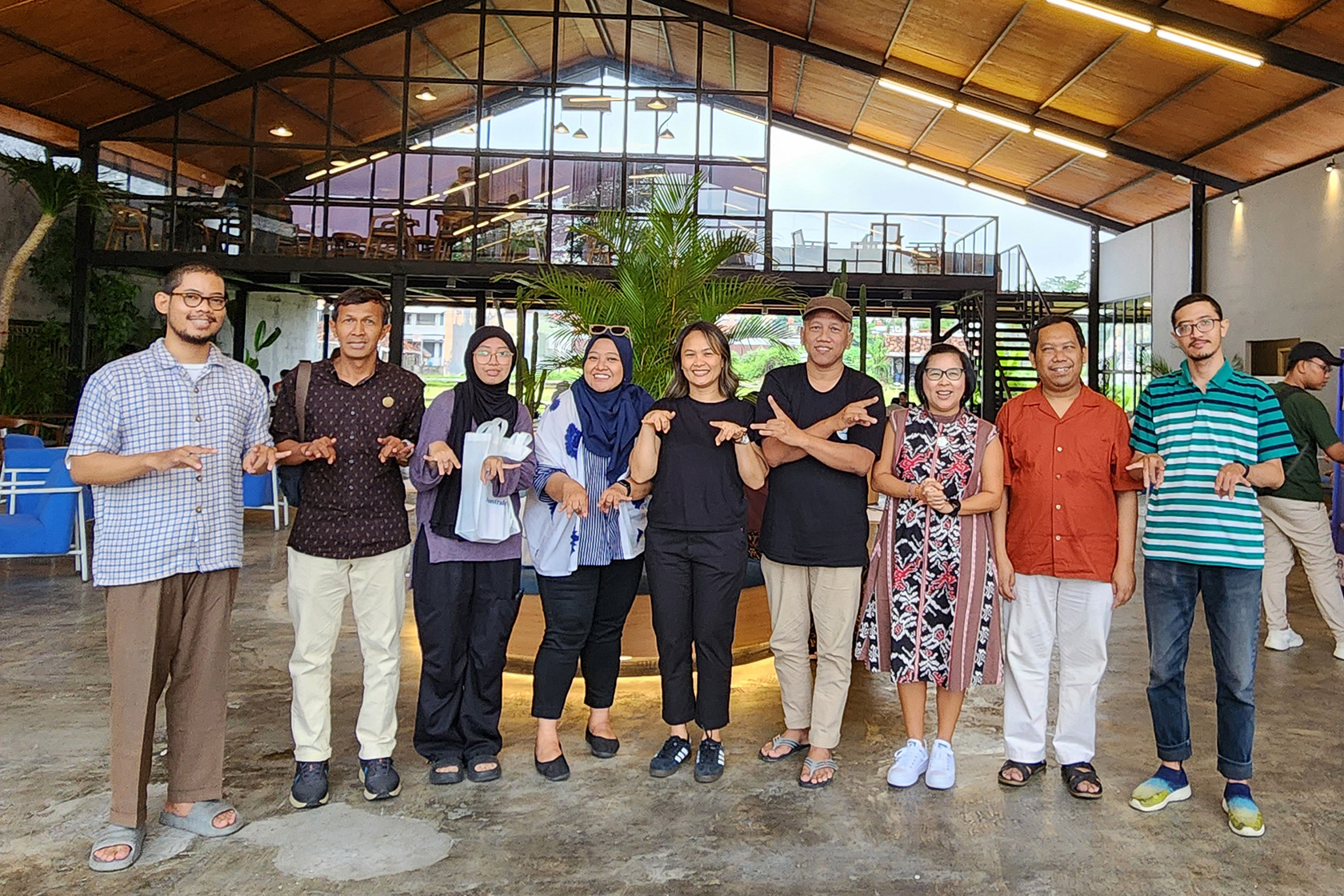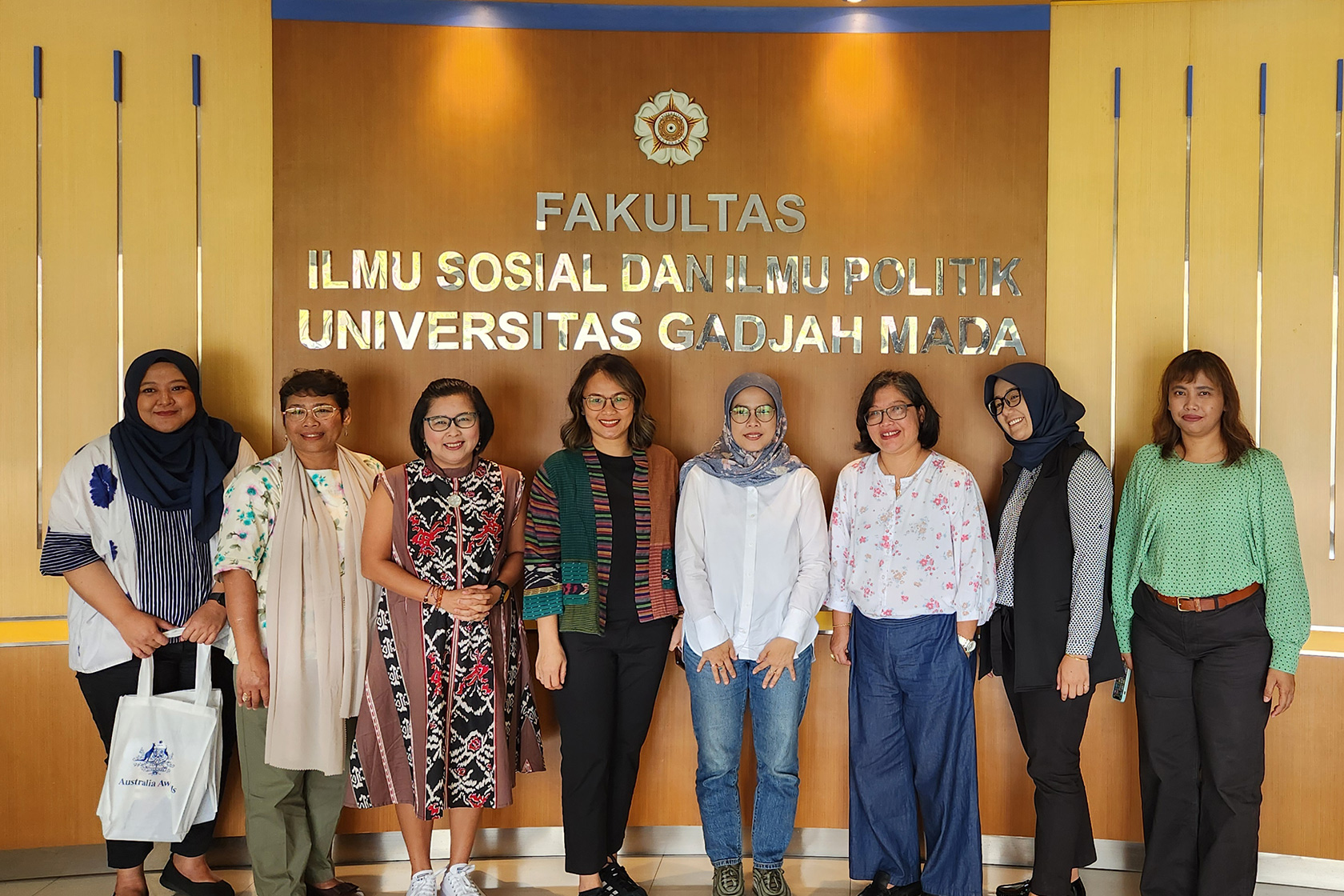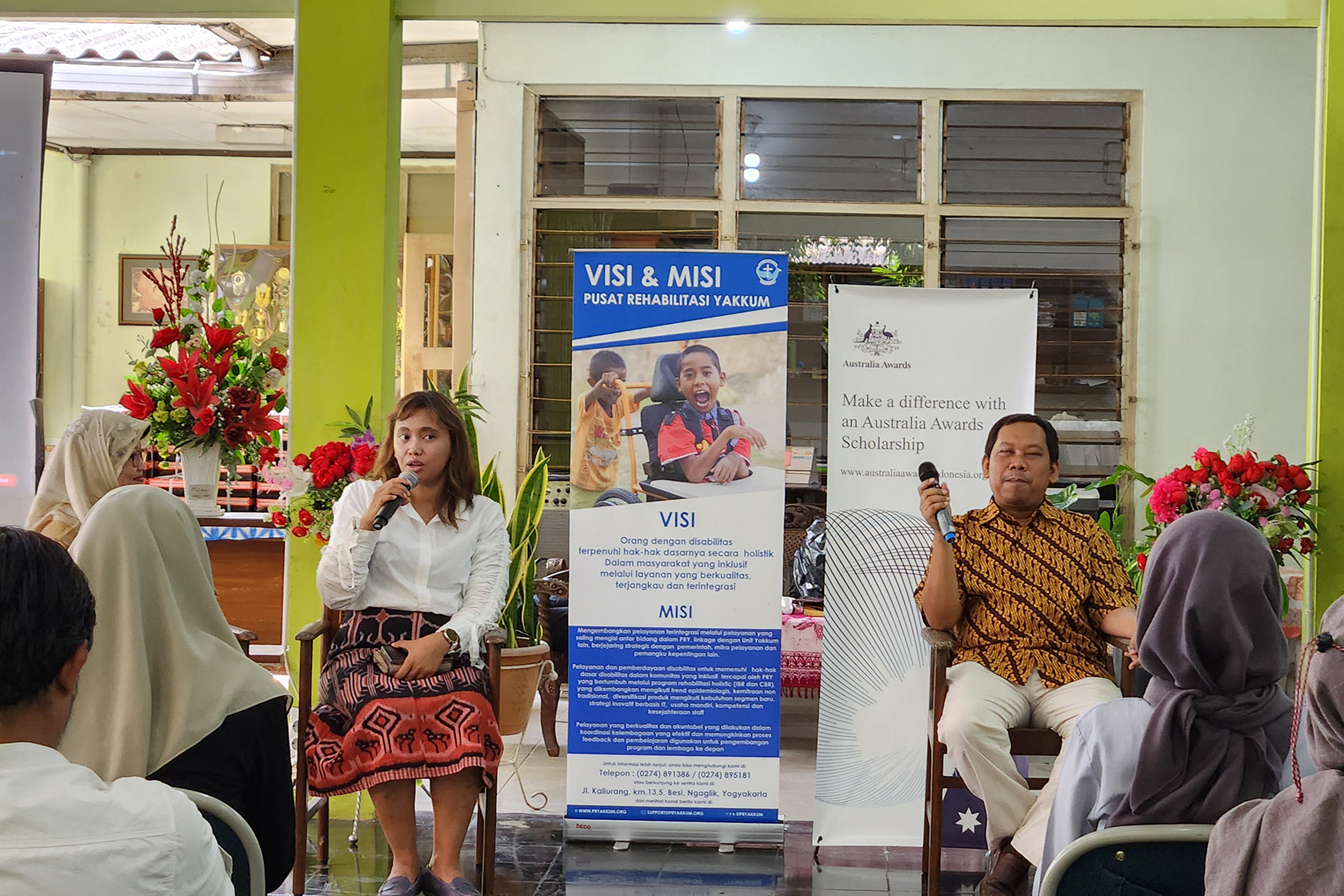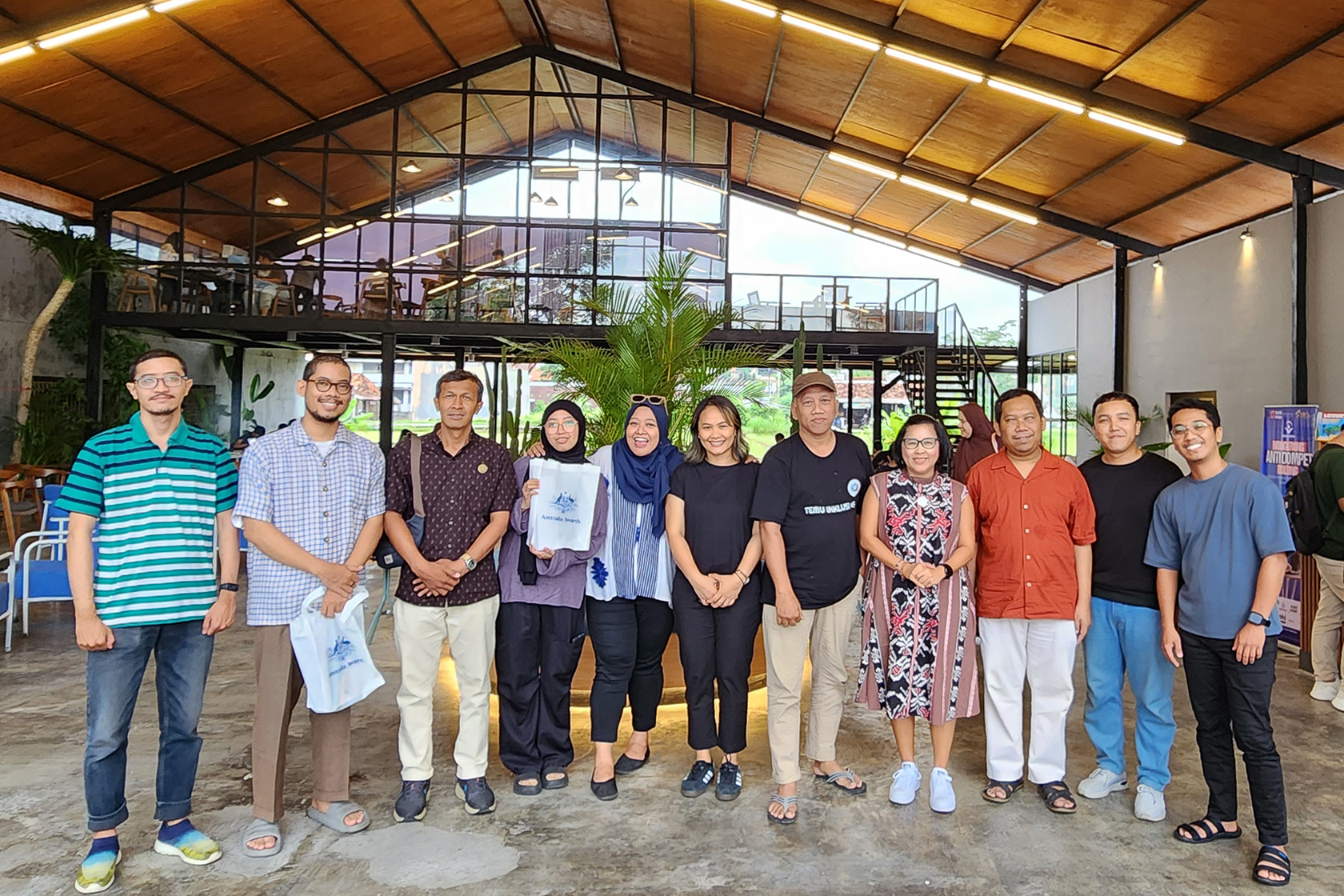People with disability and women from disadvantaged backgrounds have learned about the potential pathways to accessing higher education in Australia, at an information session held in Yogyakarta.
Australia Awards in Indonesia (AAI), The Australia-Indonesia Partnership Towards an Inclusive Society (INKLUSI), and the Department of Foreign Affairs and Trade are working to establish partnerships with Indonesian organisations that share the same goal of making education more inclusive.
On 27 January 2024, they partnered with Yogyakarta-based YAKKUM Rehabilitation Center (PRY) to present an information session about scholarships to study for a Bachelor/Diploma degree in Indonesia or a Master/PhD degree in Australia.
AAI Gender Equality, Disability, and Social Inclusion Adviser Lia Marpaung said AAI had been conducting outreach activities with organisations from Yogyakarta and the surrounding area that supported women and people with disability.
The aim of the collaboration with PRY was to promote programs that could help people from these groups to continue their education.
"We believe that by giving opportunities for higher education, the AAI program will help improve the welfare and quality of life of people with disability and women from disadvantaged backgrounds in Indonesia," said Lia.
Nina Hendarwati, Partnership Coordinator INKLUSI, said the requirement to have a bachelor's degree was one of the obstacles for people with disability when attempting to advance their education. This included people interested in the Australia Awards Scholarships program, which is focused on masters and PhD programs.
However, PRY offers scholarships for bachelor’s degrees and diplomas. By joining forces, the teams from PRY and AAI were able to present a potential new pathway for people with aspirations of further study.
"The AAI and PRY event in Yogyakarta was a move to bridge and close the gap,” Nina explained. “This workshop offered real solutions, not just discourse. The principle of ‘no one left behind’ is being realised here.”
A Rare Opportunity
Australia Awards alumna Rani Hapsari, who is from PRY, explained that over the years, PRY has given people with disability access to educational opportunities by offering scholarships to help them obtain a bachelor's degree or diploma. The scholarships help them overcome the challenges of constrained expenses, access to information, and suitable accommodations.
"For PRY, this session was the first time we could reach participants from various regions. This will have an impact on making the dissemination of information related to scholarship programs more widespread," said Rani.
"People with disability are also the target recipients of the Australia Awards Scholarships, an opportunity rarely provided by other scholarship programs. People with disability are given affirmative quotas so they can have the same opportunities as non-disabled people."
Diwya Anindyacitta (Nindya), Inclusion and Accessibility Manager at AAI, said she would spread information about the undergraduate scholarship opportunities provided by PRY when promoting the Australia Awards Scholarships.
"All Australia Awards Scholarships programs that open up opportunities for people with disability can be shared through the PRY network, and vice versa. PRY not only networks with disability groups but also women from disadvantaged groups and other marginalised groups, which are part of AAI's equity target groups," said Nindya.
PRY's work, which strives for the broadest possible opportunities for people with disability to gain access to education, health, and welfare, has also inspired Nindya in other ways.
"One of their initiatives that can be adopted in the Australia Awards program is the creation of a pocketbook on psychosocial disabilities, and an understanding of the importance of mental health among staff and beneficiaries of Australia Awards programs," she added.
Making Education Accessible
Mohammad Ismail, an Australia Awards alumnus and a member of Sasana Inklusi & Gerakan Advokasi Difabel (SIGAB), who joined the session, said although people with disability participated in the education system, they were still not involved in its design. This included people who were deaf and hard of hearing.
"What happened was that people with deafness and hearing loss were considered to have low Indonesian language skills. In fact, for people with deafness and hearing loss, the ability to speak Indonesian should start from one's own mother tongue, namely sign language. Not the other way around," said Ismail.
Ismail emphasised that the most crucial barrier to accessibility for people who are deaf was the attitudes of others. These people needed not only to facilitate communication, but also to be open, empathetic, and receptive to feedback to find the best course of action, said Ismail.
Another representative from the deaf community who is also a masters graduate from Universitas Negeri Yogyakarta, Wahyu Triwibowo, hoped for an end to discrimination that prevented people who were deaf or hard of hearing from pursuing higher education.
"Hopefully a synchronisation of perspectives can be developed, both the perspectives of educational staff, the medical perspective, and especially the perspective of society," said Wahyu.





 Australia Awards in Indonesia Collaborates with PR Yakkum to Promote Steps to Higher Education for Women and People with Disability
Australia Awards in Indonesia Collaborates with PR Yakkum to Promote Steps to Higher Education for Women and People with Disability
